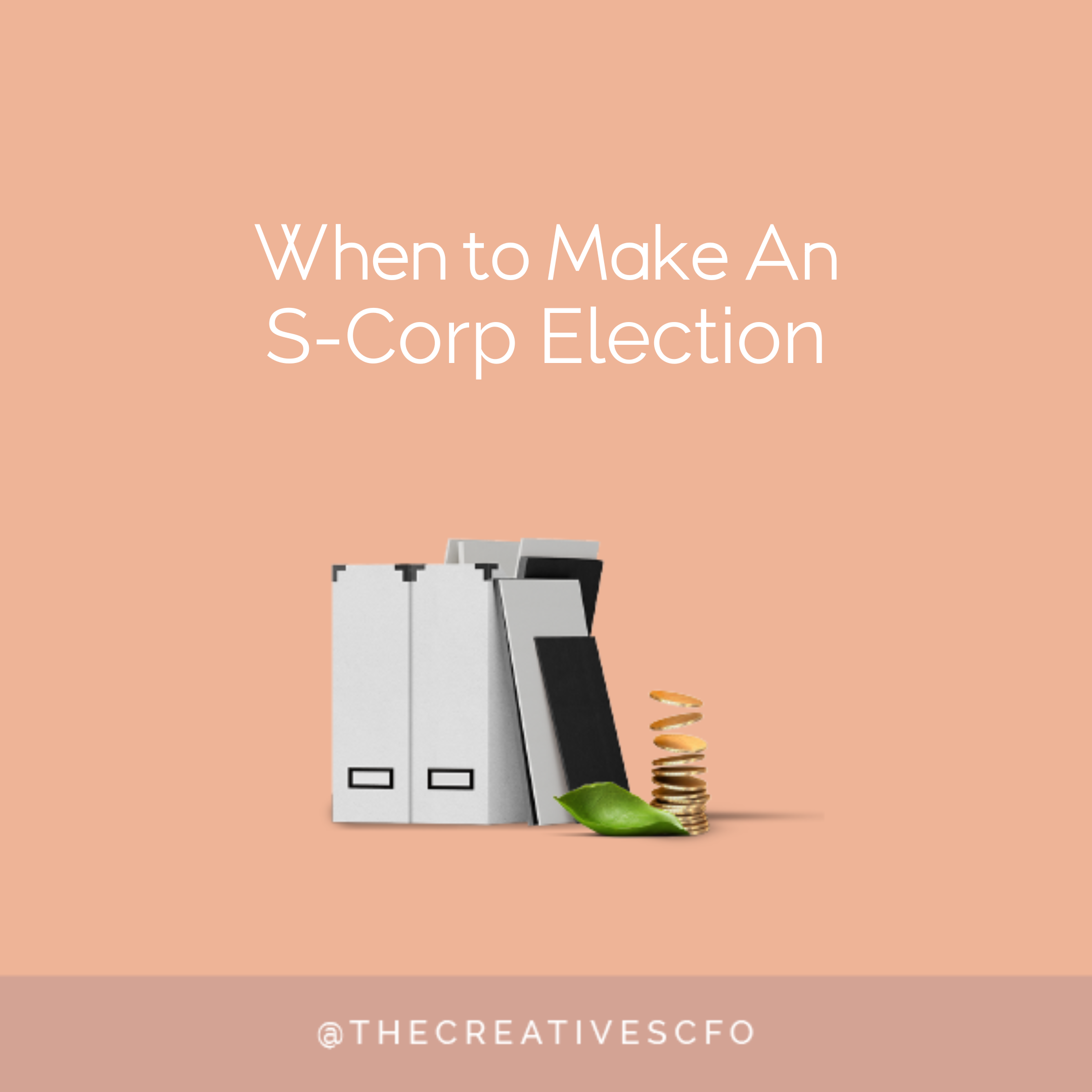We’re in the final stretch of 2022, and tax time is swiftly approaching. The Creative’s CFO Team has you covered for all things financial reporting. Yet we want to proactively answer any questions you may have between now and the official end of the year.
Is it time to make the S Corp election?
You’ll commonly hear it referred to as “becoming an S Corp” or “filing for S Corp status.” It’s all the same thing – but what does it truly mean for you and your business? And is it necessary for you this year?
Making an S Corporation election means that you’d like for your business to be recognized as a small business corporation for tax purposes. “For tax purposes” is the key phrase here, because making the S Corporation election does not create a legally identifiable business entity such as an LLC, partnership, or C corporation.
It is merely an ask that the IRS treat your business as a corporation, allowing you to write off your salary and associated payroll taxes as a business expense. That means, you not only save by being able to deduct half of the self-employment tax, but you’re also not subject to double taxation like C Corporations.
Here’s an example.
Your business is registered as a single-member LLC. Your business remains such, even upon making the S Corporation election with the IRS. That means, you must still update your business registration annually (or as required by your State) and pay any applicable fees.
What’s different is that now you’re required to write off your owner’s salary and the employer portion of payroll taxes. You may also receive a preferential tax rate for additional profit distributions.
How do you know when it’s time to make the S-Corp election? What’s that magic number?
The bottom line is that there isn’t a magic number. To determine if the S Corporation election will reduce your tax liability, the tax CPA will essentially draft the tax return both ways – with and without the S Corporation election. Whichever way results in the least amount of taxes owed is often the recommended filing status!
Something else to consider is that S Corporations file a separate tax return. Businesses that have made the S Corp election don’t pay taxes – you do! – but they do file an informational tax return. So, it’s important to keep the cost of filing that return in mind when considering the potential savings of making the S Corp election.
Also, payroll processing is required upon making the S Corporation election, as is “reasonable compensation” for the owner, so keep in mind the cost of payroll processing and the availability of cash in the business to be able to meet these requirements.
What should you do now?
NOTHING. Allow The Creative’s CFO Team and your tax CPA to determine if the S Corporation election will be beneficial for you. If it is, a retroactive filing is possible and can help you save money for the 2022 tax year.
If you attempt to make the election yourself prior to the March 15th deadline, it will go into effect for the 2023 tax return filing. Thereafter, it will go into effect for the 2024 tax year.
If any additional questions arise, we’re here to help! No question is too small.
All the best,
The Creative’s CFO Team
